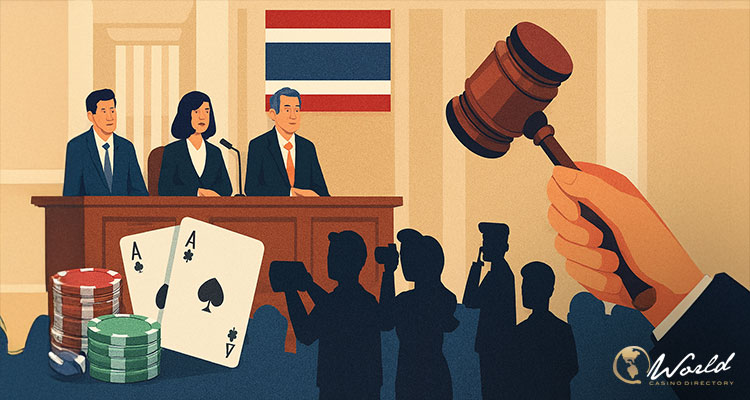Thailand is on the verge of becoming the first ASEAN nation to enact dedicated gaming legislation with the introduction of the Promotion of the Game Industry Act. This proposed law seeks to address the growing concerns over “hidden gambling” elements in games, such as randomized reward systems, loot boxes, and point-accumulation mechanisms redeemable for prizes. Currently, there is no clear regulatory authority to oversee these aspects, leading to potential risks for consumers and the gaming community.
Establishing Regulatory Oversight
Once enacted, the Game Industry Promotion Act will grant the Cyber Crime Investigation Bureau the authority to immediately suspend unregistered games and conduct audits to ensure compliance with safety, fairness, and transparency standards. This law also mandates the establishment of three distinct committees to oversee the regulation of the gaming industry. The first committee will be the Registration Committee, which will handle the registration of gaming entities and ensure that all operators comply with legal requirements. The second committee, the Regulatory and Inspection Committee, will be led by the Cyber Police and Provincial Police and will be responsible for monitoring games and enforcing the necessary regulatory standards. Lastly, the Game Industry Promotion Committee will focus on fostering industry growth, ensuring that the gaming sector continues to evolve in a sustainable manner.
These three committeeswill operate independently to minimize overlap and maintain a balanced approach to security, economic growth, and industry development. Their roles are designed to complement one another, working together to create a regulatory framework that is both comprehensive and fair.
The introduction of this legislation positions Thailand to align its gaming industry with global standards, placing the country on par with gaming powerhouses such as China, Japan, and South Korea. By implementing a clear regulatory framework, Thai developers are expected to gain the confidence to expand into international markets, backed by government-supported industry standards. According to The Nation, Nuttapon Nimmanphatcharin, the President and CEO of the Digital Economy Promotion Agency (DEPA), has emphasized that the goal of the bill is not to stifle competition but to “regulate the game market” to ensure fairness and sustainability. The bill is also seen as a crucial element in elevating Thai games on the global stage, enhancing their potential and creating a competitive edge in the international gaming market.
Strategic Timing with Gamescom Asia 2025
Thailand’s push for formal gaming regulation comes at a significant time, coinciding with the country’s hosting of Gamescom Asia 2025. The event, scheduled from October 16 to 19, 2025, will be held at the Queen Sirikit National Convention Center in Bangkok, marking the first time Thailand has hosted the prestigious global gaming industry event, after it moved from Singapore. This event presents an excellent opportunity for DEPA and its public and private sector partners to showcase Thailand’s potential as a leader in the Asian gaming market. It also offers a platform to attract global investors and industry stakeholders, further establishing Thailand as a key player in the regional and global gaming landscape.
Nuttapon has reiterated that DEPA remains open to feedback from all sectors, especially from the private sector and gaming associations, to ensure that the law is comprehensive, equitable, and aligns with industry needs. If enacted within the next four months, the Game Industry Promotion Act will be a critical tool in closing legal loopholes, protecting consumers from fraudulent games, and promoting the sustainable growth of Thailand’s gaming industry. This legislation will not only provide much-needed regulation but also create a stable and transparent environment for both developers and players.


